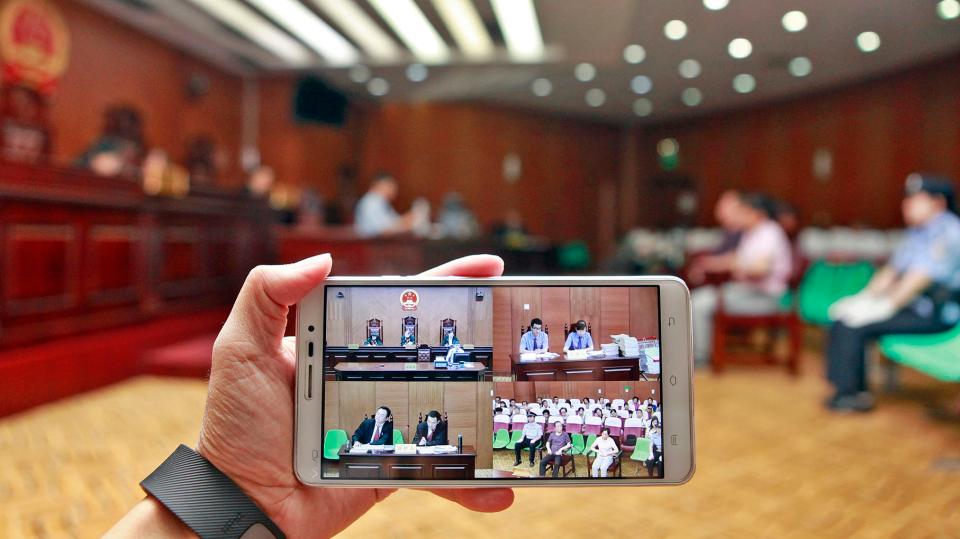As of March 12, 2019, a total of 2.66 million court cases in China were livestreamed, according to the official website tingshen.court.gov.cn, reported Shanghai-based news portal
The Paper. While livestreaming trials has helped enhance judicial fairness and credibility, a series of new legal issues have emerged, the portal reported.
China’s Supreme People's Court (SPC) specified in 2010 in a document which cases are off limits, including certain criminal cases as well as civil and administrative cases in which litigants argue for no livestreaming. Other laws also made similar provisions, the report said.
Yet they still fall short of clear, specific definitions. In selecting cases for livestreaming, judges’ discretionary power is not regulated, Cheng Guangxin, a lawyer at the Shanghai-based Dehehantong Law Offices, told the portal. He suggested an operating, nuanced guidance system on livestreaming trials should be established.
Moreover, the SPC document places that decision-making right primarily with the courts themselves and, in some cases, with the prosecutors. Gao Yifei, professor at the Southwest University of Political Science and Law, argued that since prosecutorial organs are themselves public prosecutors, and are thus related to a case’s results, their decision-making power on this does not comply with the fundamental law of judicial proceedings.
And despite the defendants’ stipulated right to object to courts’ decisions on livestreaming in civil and administrative cases, this right is not guaranteed in practice, Cheng noted. He proposed a trial livestreaming examination mechanism, which should specify which department of a court can examine the applications, the standards and procedures of examination.
Huang Taotao, a judge at Daxing District court in Beijing, added that for minor cases which are livestreamed, the defendant's identity should be concealed, to help them return to society when they are released from jail.

 Old Version
Old Version